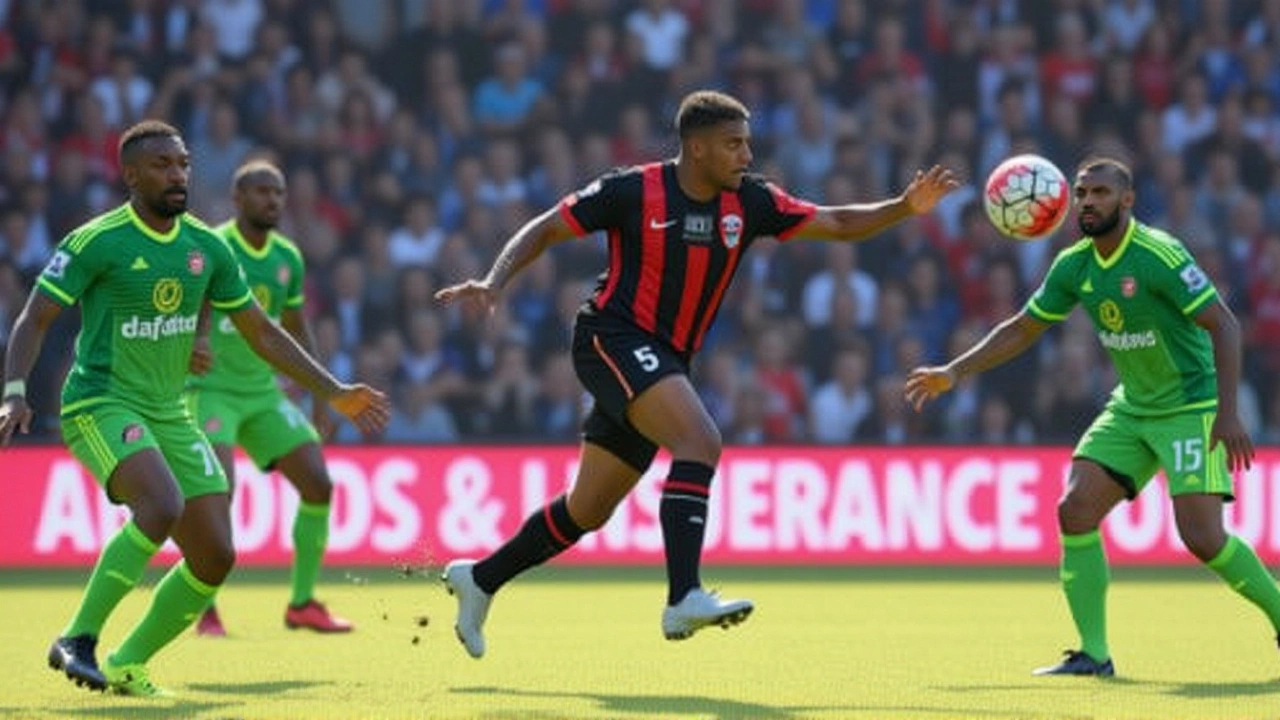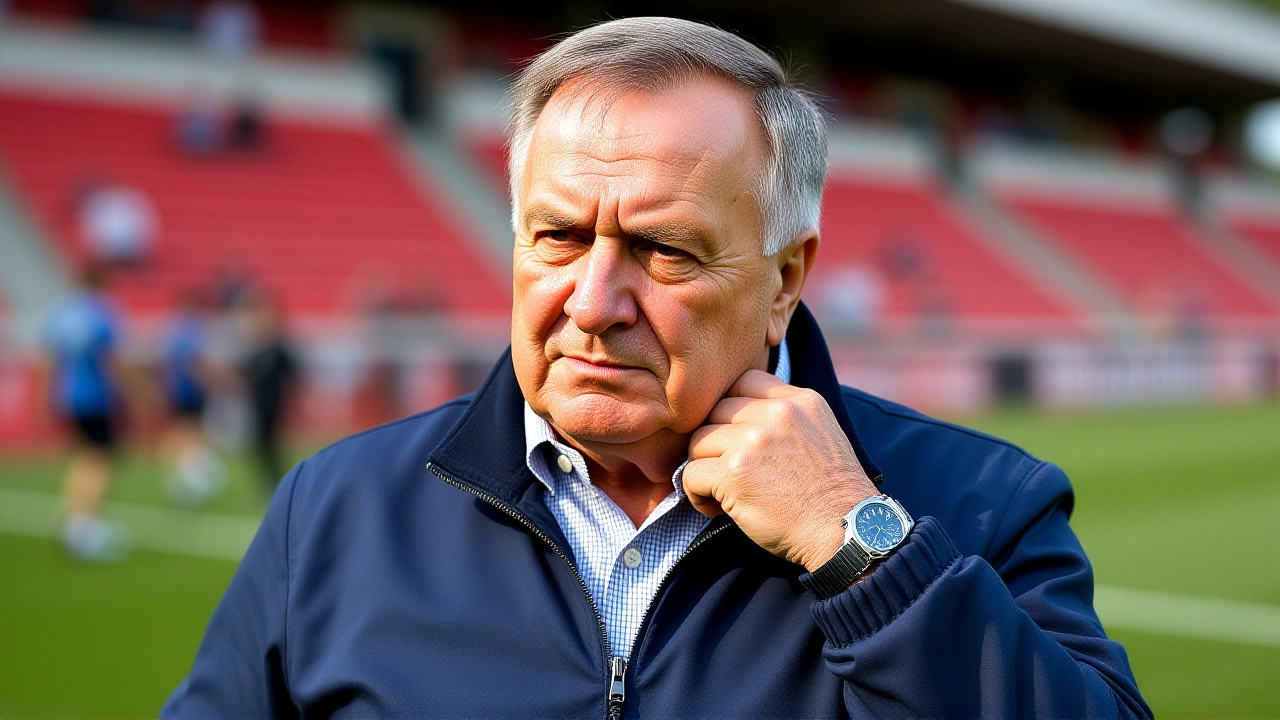When Dick Advocaat stepped onto the pitch in Kingston on November 18, 2025, he wasn’t just watching a match—he was cementing football history. At 78 years old, the Dutch tactician has guided Curaçao to their first-ever FIFA World Cup United States, Canada, and Mexico, becoming the oldest manager ever to reach football’s biggest stage. The Caribbean island nation, population just 160,000, finished top of CONCACAF’s Group B with 11 points from five unbeaten matches, edging out Jamaica on goal difference after a 1-1 draw that sealed their fate. It’s not just a miracle—it’s a seismic shift in global football.
A Record Broken by Time and Tenacity
The previous record holder, Germany’s Otto Rehhagel, was 71 years and 317 days old when he coached Greece in their 2010 World Cup campaign. Advocaat doesn’t just surpass that—he obliterates it. By the time Curaçao kicks off their opening match in June 2026, he’ll be 78 years and 9 months old. No manager in history has ever led a team to the World Cup at this age. And yet, Advocaat didn’t even flinch when asked about the milestone. "It will be the biggest thing in the history of Curaçao," he told the BBC, his voice steady, eyes fixed on the horizon. He’s not thinking about records. He’s thinking about the kids in Willemstad who now believe they can play with the giants.The Rise of a Tiny Nation
A decade ago, Curaçao sat at 150th in the FIFA rankings. Today, they’re 82nd. That’s not luck. That’s systematic rebuilding. Advocaat took over in 2021, inheriting a team with raw talent but no structure. He restructured youth academies, forged ties with Dutch clubs to scout diaspora talent, and convinced players born in the Netherlands—like Sheffield United’s Tyty Chong, a former Manchester United academy product—to represent their ancestral homeland. The result? A squad that blends physical grit with tactical discipline. They didn’t win by scoring five goals a game. They won by winning when it mattered: three victories, two draws, zero losses. They didn’t just qualify—they dominated.A Career Built on the Unthinkable
Advocaat’s résumé reads like a football atlas. He’s managed the Netherlands national team three times. He led Rangers FC from 1998 to 2001, becoming their first foreign boss, signing stars like van Bronckhorst and Kanchelskis with backing from chairman David Murray. He took Sunderland AFC to safety in 2015 after a chaotic mid-season takeover. He’s coached in Russia, South Korea, Iraq, Belgium, and even the United Arab Emirates. But none of those jobs carried the weight of this one. ESPN called it "arguably his greatest against-all-odds glory." And they’re right. Managing a top-tier club is one thing. Managing a team with no professional league, no funding, and no infrastructure? That’s different.
Why 2026 Was the Perfect Storm
Let’s be honest: Curaçao’s qualification wouldn’t have been possible without the expanded 48-team format. The 2026 World Cup, co-hosted by the United States, Canada, and Mexico, opened the door wider for CONCACAF nations. No longer were tiny teams fighting for one or two spots. Now, six teams from the region qualify automatically. But that doesn’t explain how Curaçao beat Jamaica, Panama, and Haiti. That’s all Advocaat. He turned underdogs into believers. He made players feel like heroes before they ever wore the jersey.What Comes Next?
The 2026 World Cup runs from June 11 to July 19, 2026, across 16 venues from Toronto to Los Angeles. Curaçao will be drawn into a group with traditional powers—likely Brazil, Spain, or Germany. They won’t win the tournament. But they’ve already won something bigger: legitimacy. Advocaat’s legacy isn’t just about age. It’s about proving that football isn’t about budgets or population. It’s about vision.And here’s the quiet truth: Advocaat isn’t retiring. Not yet. He’s already rumored to be in talks with the Curaçao Football Federation about extending his contract through the 2030 qualifiers. Why? Because he’s not done making history.

Behind the Scenes: The Real Story
Some reports claimed Advocaat wouldn’t coach the Jamaica match because it was "too important." That’s misleading. He was on the bench. He coached every minute of the campaign. The confusion likely stems from media misreporting during the tense final days. In truth, he was there—calm, composed, tactical. He didn’t shout. He didn’t pace. He just watched, adjusted, and trusted his players. That’s his style. It’s why his teams rarely collapse under pressure.And what about the Dutch media? They’re stunned. For years, Advocaat was seen as a relic—a man past his prime. Now, they’re calling him "the grandfather of grit." One Dutch columnist wrote: "He didn’t just coach a team. He gave a nation a heartbeat."
Frequently Asked Questions
How did Curaçao go from 150th to 82nd in FIFA rankings under Advocaat?
Advocaat overhauled Curaçao’s entire football infrastructure, establishing youth academies tied to Dutch clubs and recruiting Dutch-born players of Curaçaoan descent. He introduced structured training, video analysis, and psychological support—tools rarely available in smaller nations. His focus on defensive organization and counterattacking efficiency allowed Curaçao to punch above their weight, turning draws into wins through disciplined execution.
Why is Curaçao considered the smallest nation ever to qualify for the World Cup?
With a population of just 160,000, Curaçao is smaller than Iceland (370,000), which held the previous record. Even microstates like San Marino and Gibraltar have never qualified. Curaçao’s achievement is unprecedented because it combines population size with competitive success against nations with ten times their resources. Their qualification proves that football success isn’t tied to population or GDP.
What makes Dick Advocaat’s managerial style unique?
Advocaat is known for his calm demeanor, meticulous preparation, and reliance on tactical discipline over flair. He favors compact defensive blocks and rapid transitions, often using wide play to exploit space. Unlike many modern managers, he rarely changes formations mid-game. His strength lies in maximizing limited resources—something he’s done consistently across continents, from Rangers to Curaçao.
Will Advocaat manage another World Cup after 2026?
While he hasn’t confirmed it, sources within the Curaçao Football Federation suggest he’s open to extending his contract through the 2030 qualifiers. At 82, he’d be the oldest manager ever to attempt a second World Cup campaign. But given his track record, it wouldn’t be surprising. For Advocaat, football isn’t a job—it’s a calling, and Curaçao is his latest mission.
How has Advocaat’s past experience helped him with Curaçao?
His stints managing under-resourced teams in Russia, Iraq, and the UAE taught him how to build systems from scratch. His time at Rangers and Sunderland gave him insight into handling pressure and media scrutiny. And his three stints with the Netherlands taught him how to unify diverse talent. Curaçao’s squad is a mosaic of Dutch, Surinamese, and Caribbean players—he’s the only manager who could have welded them together.
What impact will Curaçao’s World Cup appearance have on Caribbean football?
Curaçao’s success has already sparked renewed investment in youth programs across the Caribbean. Jamaica, Haiti, and Trinidad and Tobago have announced funding increases for grassroots football. The Caribbean Football Union is now modeling programs after Curaçao’s structure. More importantly, it’s changed perceptions: small nations can compete. And for kids in the islands, seeing their flag on the World Cup stage? That’s inspiration no budget can buy.
